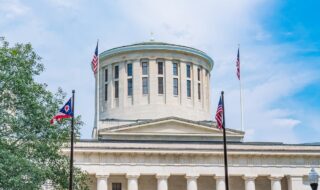May 23, 2023
New Mandates, Higher Taxes Disappoint Minnesota Small Business Owners
SAINT PAUL (May 23, 2023) – The National Federation of Independent Business in Minnesota, or NFIB, is expressing its disappointment with the conclusion of the 2023 Minnesota Legislative Session. Governor Walz and state lawmakers agreed to an unprecedented number of expensive and burdensome mandates on small businesses.
As a result of the 2023 session, Minnesota small business owners will see:
- higher labor costs and more burdensome regulations from new laws like the $1.5 billion, 20-week per year PFML mandate, the 10-day per year paid sick time mandate, and additional employment regulations;
- higher taxes and fees, making it more expensive to purchase and register vehicles (MVST and registration fee increases), send and receive retail deliveries (50 cent retail delivery tax), and more expensive to purchase supplies and equipment (1% metro area sales tax increase);
- more expensive healthcare from new insurance mandates and more government interference from a state-controlled public option health plan; and
- higher electric bills from new energy mandates and new utility taxes to fund electric vehicle subsidies.
“Minnesota small businesses will pay the price from this session for years to come,” said John Reynolds, NFIB State Director in Minnesota. “A wave of expensive new mandates and higher taxes will hit small businesses in the next three years, washing away bottom lines and eroding the ability to invest and grow in Minnesota.”
The Minnesota Legislature started this session with an $18 billion surplus and ended with a $20 billion increase in general fund spending. The Taxes, Transportation, and Housing Budget Bills alone increased taxes and fees by nearly $7 billion over the next four years.
The Paid Family and Medical Leave (PFML) payroll tax will add another $1.5 billion per year when it takes effect in 2026.
“Small business owners came into this session looking for relief from inflation, supply disruptions, and worker shortages,” added Reynolds. “Instead, Minnesota Democrats gave them higher taxes, higher labor costs, and more red tape.”
Small business owners routinely report that labor quality and labor availability are among their biggest challenges. According to NFIB’s most recent monthly Jobs Report, 43% of owners reported job openings they couldn’t fill and 90% reported few or no qualified applicants for open positions.
NFIB and its 10,000 members around the state have been very vocal about how new mandates – especially the $1.5 Billion, 20-week PFML mandate – will impact their ability to operate and hire employees. You can hear their voices and find out more here.
NFIB is a member-driven organization advocating on behalf of small and independent businesses nationwide.
Related Articles













